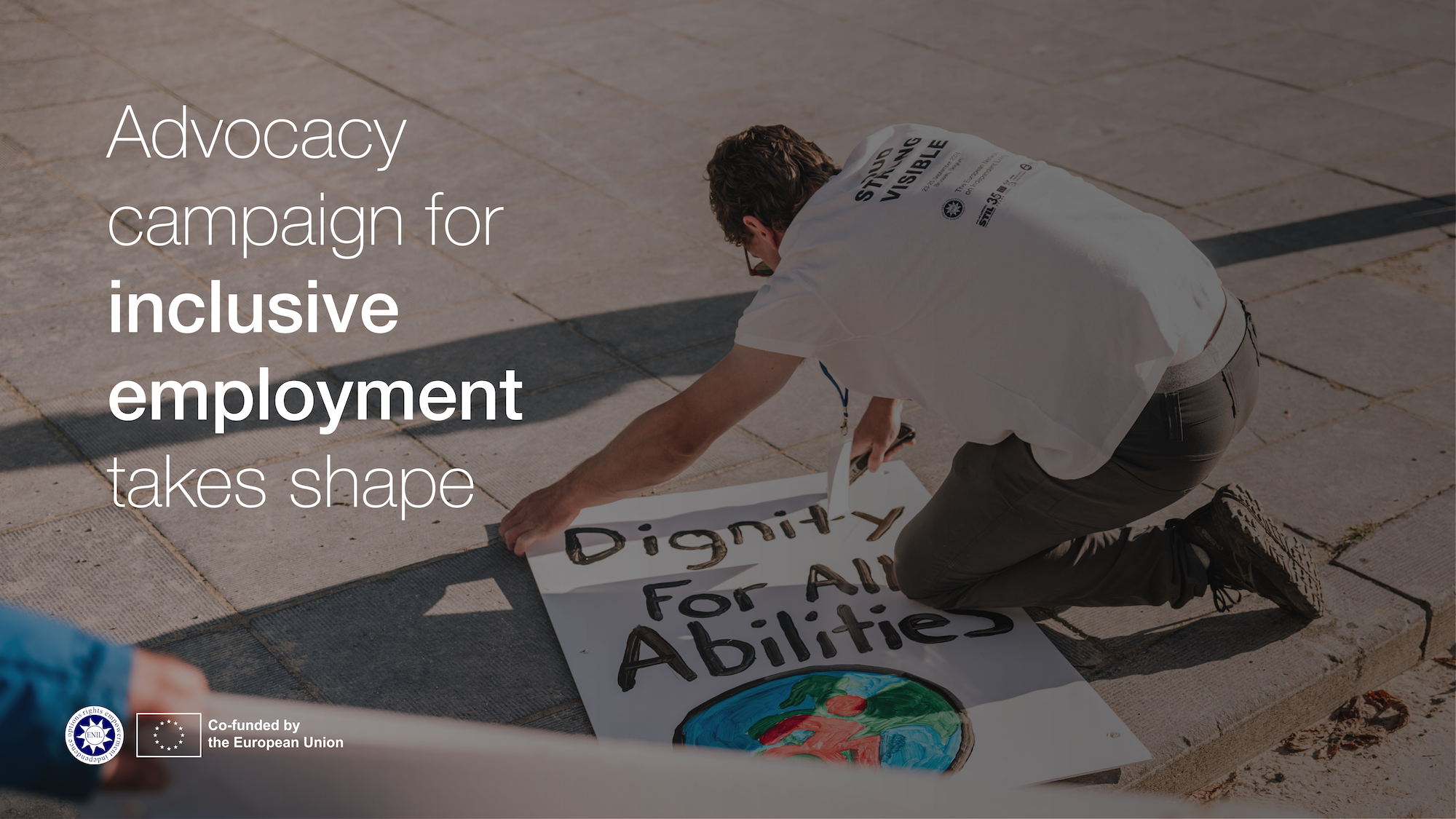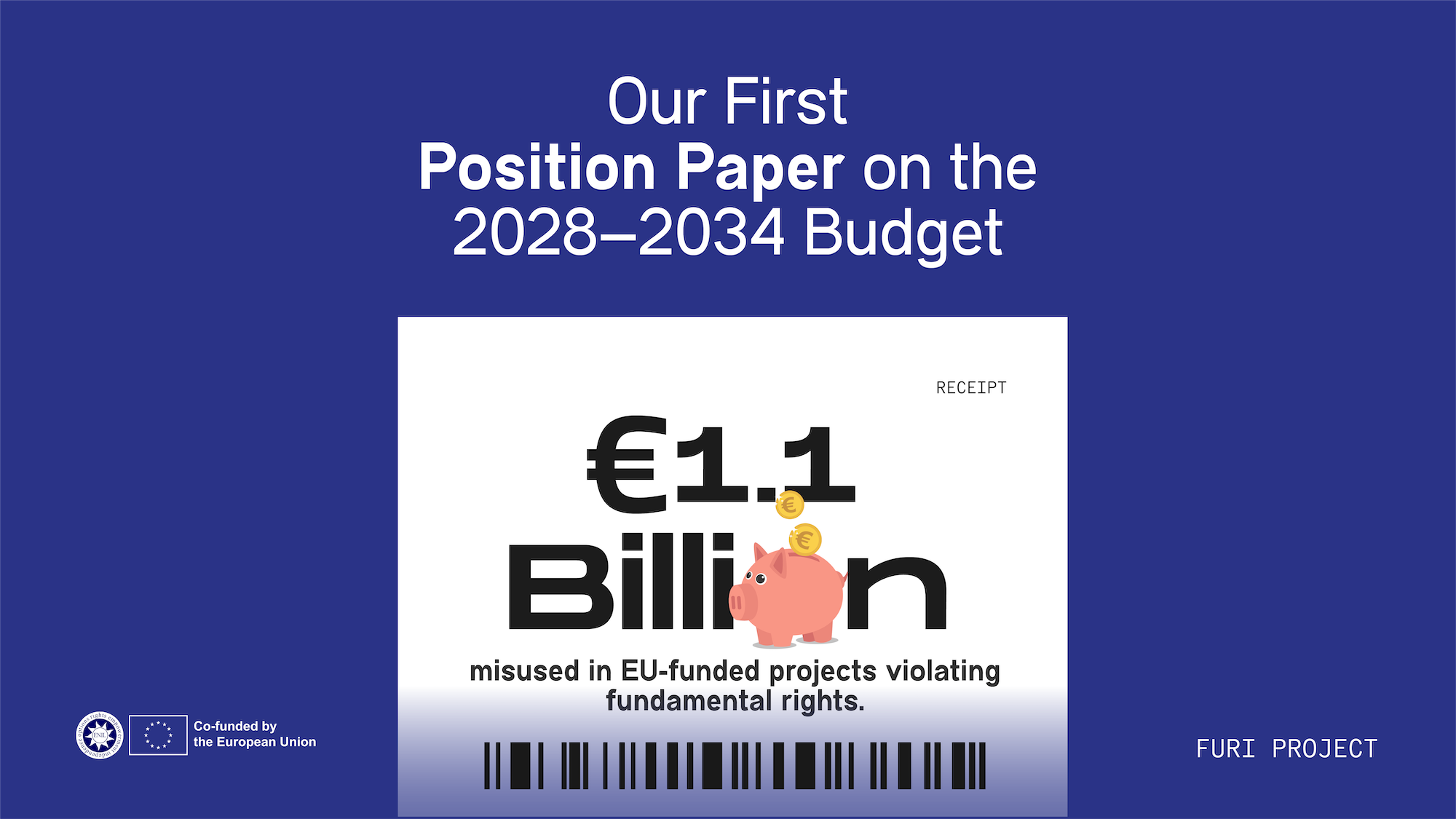My name is Ebru Oksuz. I navigate life with low vision and bipolar depression. Sharing this part of my identity fosters understanding, dismantles stigma, and strengthens the call for systemic change and as a sociology graduate with extensive experience working with non-governmental organizations focused on disability rights and inclusion, my academic journey began during my undergraduate studies, where I explored the intersection of gender and disability in my thesis. This foundation deepened through my volunteer work with the Association of Women with Disabilities, which ultimately inspired my master’s research on independent living rights in Türkiye.
During my master’s studies at Istanbul University, I conducted an in-depth investigation titled The Relation of Culture and Demand: The Right to Independent Living of Persons with Disabilities. This research is among the first academic works in Türkiye to examine how socio-cultural and economic factors shape access to independent living. It focuses particularly on the transformative potential of personal assistance services.
A significant component of my research involved the Personal Assistance as a Key Tool for Independent Living of Persons with Disabilities (PAKT) project. This initiative, spearheaded by the Association of Women with Disabilities in collaboration with the European Network on Independent Living (ENIL) and supported by the European Union, introduced personal assistance as a cornerstone of independent living in Türkiye. Through this project, I explored both the experiences of individuals who benefited from personal assistance services and those who lacked access to such support.
As I have embarked on my research, I found that the concepts of “independent living” and “personal assistance” were often misunderstood or misrepresented in Türkiye. Many participants in my research expressed those cultural expectations within their communities limited their autonomy. Family caregiving was frequently regarded as the sole acceptable form of support, creating a dependency dynamic that restricted their ability to advocate for their rights or make independent decisions about their lives.
Economic disparities further compounded these challenges. Personal assistance services were often inaccessible to those who needed them most, either because of high costs or limited-service availability. This highlighted a critical gap between the theoretical recognition of independent living as a right and its practical implementation.
It is worth mentioning that one of the most striking findings of my research was the lack of awareness among policymakers and the general public regarding the benefits of personal assistance. Participants shared how access to such services could empower them to pursue education, employment, and active participation in their communities. However, the prevailing charity-based perspective on disability often undermined these efforts, treating personal assistance as a luxury rather than a necessity.
The UN Convention on the Rights of Persons with Disabilities (UN CRPD), particularly Article 19, provided a strong foundation for my research. This article emphasizes the right of persons with disabilities to live independently and be included in the community. However, translating this global framework into actionable policies at the local level remains a challenge in Türkiye.
Through qualitative interviews, I explored how personal assistance services could bridge this gap by offering persons with disabilities the autonomy and dignity they deserve. Yet, I also uncovered significant gaps in public awareness and the limited integration of UN CRPD principles into national policies.
Despite these mentioned barriers, my research also uncovered stories of resilience and determination. Many participants were eager to break free from societal expectations and reclaim their autonomy. Their experiences underscored the importance of fostering a cultural shift that prioritizes inclusion and equity over dependency and marginalization.
Collaborating with organizations of persons with disabilities (OPDs) is critical in achieving these changes. By involving individuals and organizations directly affected by these policies, we can ensure that advocacy efforts are rooted in lived experiences and reflect the priorities of the disability community.
My current role as a Disability Inclusion Specialist with UN Volunteers has provided an opportunity to translate my academic findings into actionable strategies. I work to promote volunteer opportunities for persons with disabilities, develop strategic partnerships, and align our efforts with the UN Disability Inclusion Strategy. Additionally, I have initiated strategic initiatives and successfully mobilized UN members to foster a more inclusive culture and expand opportunities for persons with disabilities across various programs and regions. This includes capacity-building initiatives for local organizations and advancing policies that prioritize accessibility and equity.
One of the most impactful lessons from my master’s research was the necessity of proactive collaboration with individuals, organizations, and policymakers. Inclusion must move beyond compliance and evolve into a philosophy that permeates all aspects of society. Personal assistance, for instance, should not merely be seen as a service but as a foundational element of independent living that empowers individuals to live independently.
Independent living is not just about accessibility; it is about transforming societal attitudes and dismantling systemic barriers. To achieve this, it is crucial to address the intersection of accessibility with social and economic empowerment, ensuring that individuals have the tools and resources to fully participate in all areas of life. It requires a comprehensive approach that addresses cultural, economic, and policy challenges. As I reflect on my journey, I remain committed to advancing the right to independent living in Türkiye and eventually beyond. By integrating global frameworks like the CRPD with local realities, I aim to create a future where inclusion is not a privilege but a universal standard. Together, through research, advocacy, and collaboration, we can ensure that everyone has the opportunity to thrive with dignity and autonomy.



